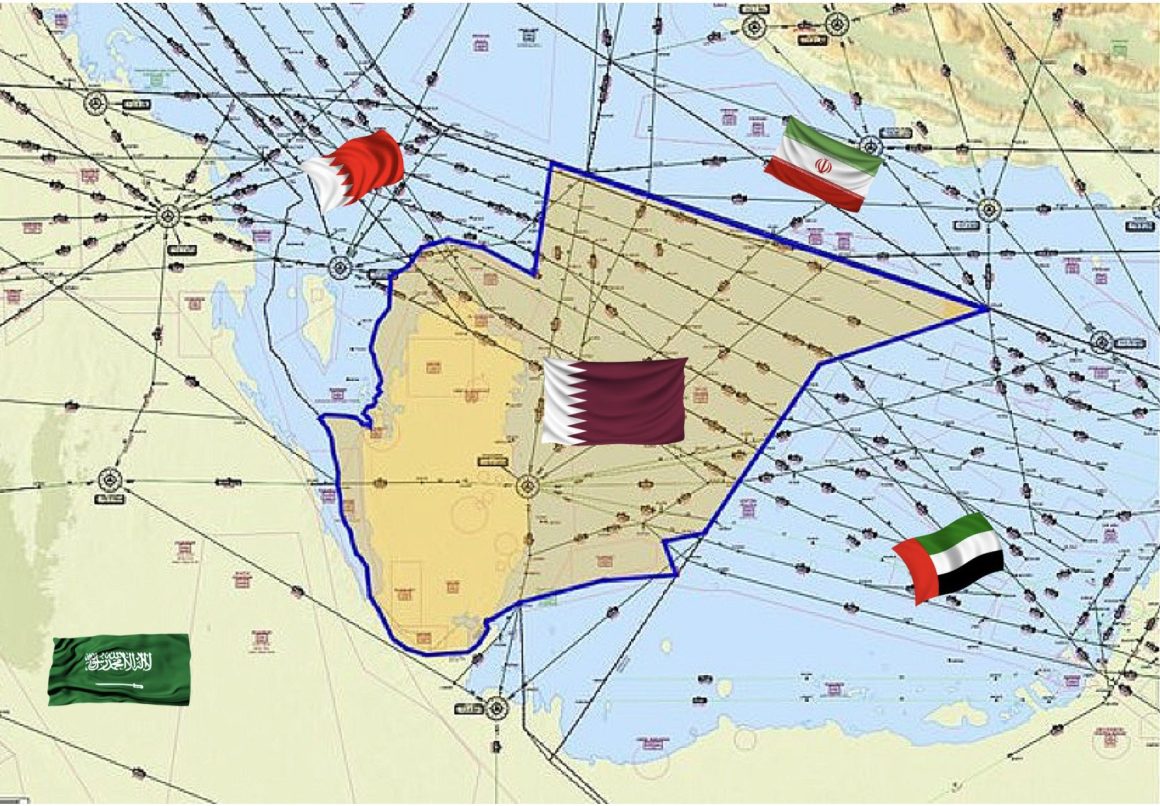The independent air space is a crucial moment in Qatar’s history, especially after its limited air corridor was suddenly blockaded in 2017.
Qatar signed an agreement with Saudi Arabia, Bahrain, and the UAE over the activation of the Doha Flight Information Region (FIR), the country’s own airspace, on Wednesday.
Signed by the Qatar Civil Aviation Authority (QCAA), the agreement links all of the signatories’ FIRs and will come into effect on 8 September. The agreement comes after a previous deal signed between Qatar and Iran in April.

The agreements represent a crucial step in the execution of the International Civil Aviation Organization (ICAO) Councils’ decision in March this year over the establishment of Qatar’s FIR.
Qatar has been in close talks with its neighbouring stakeholders in an effort to connect with its counterparts. Qatar’s Minister of Transport Jassim Al Sulaiti said the agreement exhibits the Gulf state’s readiness for the FIR activation and addition of new routes.
The FIR would enable the Gulf state to expand its current sovereign airspace into the United Arab Emirates, Iran, and Bahrain, while achieving safe and sustainable air transport operations in the region.
“As Qatar prepares for the establishment of its new airspace (Doha FIR), it’s completed the final piece of the puzzle: signing of operational agreements with Saudi, UAE, Bahrain and Iran (countries that will border the new airspace) ahead of its activation next month,” tweeted Alex Macheras, an aviation analyst.
The airspace is set to be the first to ever be established for Qatar, redrawing the skies of the world’s airspace map for the first time in decades. The Doha FIR would shrink Bahrain’s airspace and extend to the UAE and north towards Iran.
One outcome of the Doha FIR is that up to 70% of flights heading to the UAE will pass through Qatar’s airspace.
With a new FIR of its own, Qatar will gain much-needed airspace independence, and the country will have the ability to maximise the efficiency of air travel around Qatar in order to better meet its air travel sustainability goals.
The latest development in the establishment of the Doha FIR also comes just months ahead of the 2022 FIFA World Cup, where shuttle flights will take place between countries in the region.
“By coincidence, the establishment of new Doha FIR will take place just months before the FIFA World Cup Qatar 2022 when skies will be even busier,” noted Macheras.
A crucial moment
The Doha FIR is a crucial moment in Qatar’s history, especially after its limited air corridor was suddenly blockaded in 2017 when Saudi Arabia, Bahrain, the UAE and Egypt imposed a complete land, air and sea embargo on Doha.
At the time of the regional rift, Qatar was forced to alter its flight routes for three years, before the dispute was resolved on 5 January last year under the signing of the Al-Ula Declaration.
The diplomatic rift took a toll on Qatari citizens as well as those from the quartet, ripping families apart while disrupting the studies of students in higher education.







